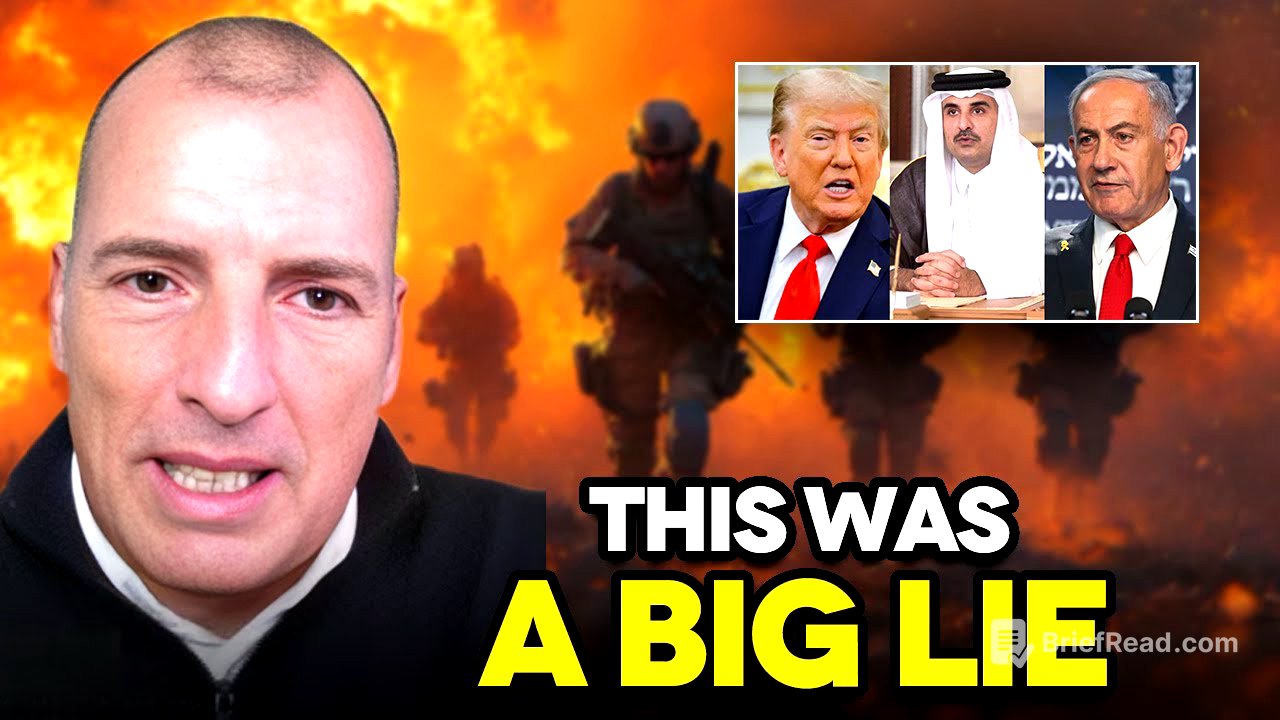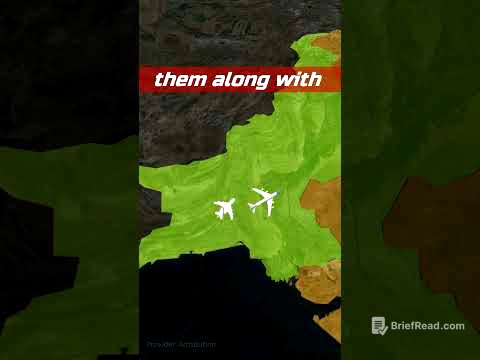TLDR;
The video discusses the implications of a recent attack in Qatar, suggesting it was a strategic move to undermine Trump's credibility and disrupt negotiations. It highlights the UK's often overlooked role in Middle Eastern affairs and the broader shift in the region's security architecture, with countries like Iran becoming central to new alliances challenging the existing order. The analysis points out the unsustainability of the current situation, where the US struggles to act against Israeli interests due to domestic political constraints, even as a global realignment takes place with nations seeking a more stable and secure future.
- The attack in Qatar was potentially a strategic blow to Trump's credibility, reminiscent of a previous incident involving Iranian negotiators.
- The UK's role in intelligence gathering and shaping outcomes in the Middle East is often overlooked.
- The current security architecture, which allows for constant conflict and targeting by Israel and its Western supporters, is unsustainable.
- Iran is emerging as a cornerstone of the future security architecture in the region.
- The US faces a political bind, unable to openly confront Israel without significant domestic repercussions.
The Qatar Attack and Trump's Credibility [0:00]
The speaker suggests that the attack in Qatar was strategically timed to damage Trump's credibility, drawing parallels to a previous incident where Israeli forces attacked Iranian negotiators during Trump administration negotiations. This pattern indicates a structural problem within the administration, where such traps are repeatedly sprung, undermining US credibility on the global stage. The presence of a British Royal Air Force surveillance aircraft circling Doha during the attack raises questions about the UK's involvement.
Political Damage Control and Netanyahu's Contradiction [2:09]
Following the attack, Trump attempted political damage control by assuring Qatar that such incidents would not recur and promising a new military cooperation agreement. However, Netanyahu publicly contradicted Trump, stating that such actions would be repeated, further undermining Trump's position. The speaker questions why the British role in these events is not scrutinised more closely, given their historical influence in the Middle East.
The UK's Overlooked Role and the Ambush [2:49]
The discussion emphasises that the UK maintains an active role in intelligence gathering and shaping outcomes in the Middle East, with a long history of involvement in the region's borders, alliances, and conflicts. The speaker questions why Trump's administration claimed to have informed Qatar of the attack beforehand, when in reality, they were only notified 10 minutes after it occurred, suggesting the US was also taken by surprise, possibly ambushed by Israeli and British forces.
The Shift in Security Architecture [4:06]
The speaker views the attack as a potential inflection point in the transition away from the British model of divide and rule in Eurasia, which has historically fostered conflict. Russia and China are attempting to reset this security architecture to achieve lasting peace on the continent. Israel's creation in Palestinian territories is seen as a means of maintaining regional instability, with recent attacks on six countries in the region receiving little attention in Western media compared to incidents involving Russia or Ukraine.
Double Standards and US Interests [5:42]
The speaker highlights the double standards in international reactions to violence, contrasting the muted response to Israel's actions with the outrage over Russian or Ukrainian actions. An analysis from 2012, reportedly involving all US intelligence agencies, concluded that Israel's existence is antithetical to US interests in the region. Despite this, the perception that the US is subservient to Israel persists, although the speaker believes the current situation is unsustainable and becoming increasingly obvious to both Western and regional powers.
The Political Bind and the Emerging Realignment [8:20]
The US faces a political dilemma, unable to openly challenge Israel due to strong domestic support for the country, which leaves US strategy vulnerable to actions it cannot fully control. Despite this, a realignment is underway, exemplified by the SCO summit in Shanghai. Nations are recognising that the current security architecture leaves them perpetually at risk and are seeking alternative alliances with countries like China, Russia, and Iran. Iran is now a key element in the future security architecture of the region.
The Crumbling Old Order and the Future [10:19]
The speaker concludes that the old order, characterised by US dominance, British intelligence operations, and Israeli impunity, is crumbling. This order is being challenged militarily and diplomatically by a coalition of states seeking a future free from constant threat. While this transition is messy and dangerous, it could mark the beginning of a new era, contingent on Washington's ability to adapt to the changing landscape.









